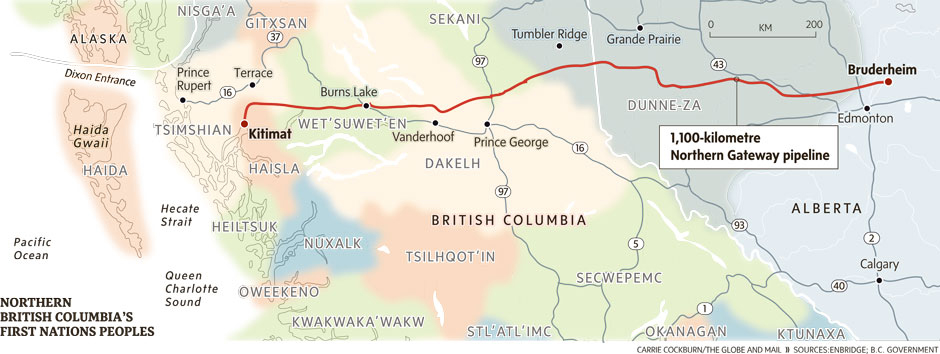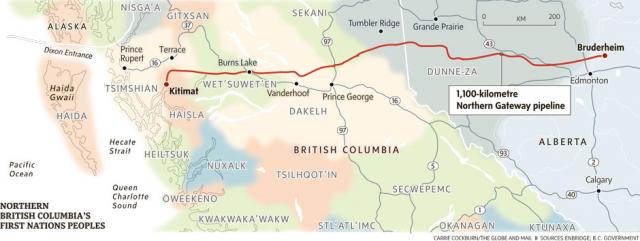The Canada-China Foreign Investment Promotion and Protection Agreement (FIPA) may be ratified as soon as tomorrow, November 1. This despite a massive demonstration of Canadian opposition to the investment trade deal that will lock the federal government into a dangerously undemocratic agreement with China and Chinese investors for 31 years.
The proposed agreement, signed by Stephen Harper in Russia on September 9 and kept secret until September 26, is being strong-armed through the house of commons after the required 21-day session in Parliament. Political action and environmental groups, opposition party leaders and experts in the field of international trade law are urging the Harper government to reconsider the agreement’s immediate ratification, demanding an open parliamentary debate before the trade deal’s future is decided.
So far all requests to throw out the deal, host a national debate, investigate the deal in emergency Parliamentary discussions, or indefinitely delay the deal’s ratification, have gone unheeded by the Harper government.
Under FIPA the federal government is obliged to protect investor rights and profits, even to compensate for lost profits. That means when it comes to disputes involving Chinese investors, like the one over the future of Enbridge’s Northern Gateway Pipeline, the Canadian government will have a duty to protect investor profits and not necessarily the jurisdictional rights of the British Columbian government, people or First Nations.
But as West Coast Environmental Law (WCEL) pointed out yesterday, First Nations people in Canada have a unique constitutional standing in the country, a standing that restricts the federal government from making decisions – without prior consultation – that affect First Nations’ constitutionally-protected Aboriginal Rights.
It appears the Stephen Harper government has not fully considered the fact that, as WCEL puts it, “by giving new rights to Chinese investors, the treaty risks undermining Canada’s obligations to deal in good faith with First Nations.”
When it comes to the China-Canada Investment Deal, not only has the Harper government failed to deal in ‘good faith’ with First Nations, but has failed to deal with First Nations at all. For this reason, the details of the treaty may be inconsistent with Canadian law.
According to WCEL Canada is hoping to ratify the trade deal through an “Order of Council,” which will see the deal implemented via Cabinet without any legislation. However, Canada is only meant to implement international treaties this way “once the treaty is consistent with Canadian law.”
Treaty implementation occurs in Canada this way because we’ve got what is called a dualist model:
“a treaty that has been signed and ratified by the executive still requires incorporation through domestic law to be enforceable at the national level…Canada cannot ratify an international treaty until measures are in place to ensure that the terms of the treaty are enforceable in Canadian law.” (This is different than America’s monist system where Congress has the power to ratify treaties, making them, in principle, US law, adds WCEL).
So, are the terms of FIPA ‘enforceable’ in Canada?
Well, no. Not according to Section 35 of the Canadian Constitution which states that the Crown must make decisions “leading to a just settlement of Aboriginal claims.” The Crown also has a duty to consult and accommodate First Nations before adversely impacting Aboriginal Title and Rights.
Aboriginal Title and Rights include the right to exercise sovereignty over territorial lands, to fish and hunt traditional foods and to partake in ceremonial practices. What is immediately obvious to BC First Nations is that Canada’s duty to protect and ensure these rights runs into conflict with Canada’s proposed duty and obligation to promote and protect the rights of Chinese investors eager to make a profit of the country’s production and export of tar sands oil.
Yesterday the Union of BC Indian Chiefs addressed Stephen Harper directly on this issue.
As they outlined in an open letter, BC‘s First Nations are concerned Canada’s ability to honour negotiations with aboriginal peoples will be limited while the legal threat of international arbitration hangs over the government’s head. This is especially pertinent to the development of the tar sands and the construction of bitumen pipelines – both of which pose a significant threat to First Nations’ territorial sovereignty and traditional, land-based ways of life.
On behalf the Union of BC Indian Chiefs, we are writing to firmly express, advise and direct the Government of Canada to reject the Foreign Investment Promotion and Protection Agreement with China as the Government of Canada has breached its fiduciary duty to consult First Nations on our respective constitutionally-enshrined and judicially-recognized Aboriginal Title, Rights and Treaty Rights.Furthermore, as both Canada and China have adopted the United Nations Declaration on the Rights of Indigenous Peoples, both countries are bound by Article 19 which states: “States shall consult and cooperate in good faith with the indigenous peoples concerned…in order to obtain their free, prior and informed consent before adopting and implementing legislative or administrative measures that may affect them.”As designed, we believe that through the ratification of this agreement, China will be granted protection and would thus greatly increase their investment in the development of the Alberta tarsands, pipelines, mining projects and possibly future offshore drilling projects, all at a great cost to our Aboriginal Title, Rights and Treaty Rights.
As this map illustrates, the pipeline traverses the territories of numerous First Nations in both Alberta and British Columbia and will supply Asia-bound supertankers with tar sands bitumen to ship through territorial waters.

When it comes to deciding whose rights ought to be protected, WCEL suggests FIPA could lead the government to favor foreign investors over First Nations:
“FIPA itself may violate the constitutionally-protected process of negotiations between the Crown and First Nations. There is a reasonable probability that the threat of multi-million dollar investor-state suits under FIPA will create a disincentive for the Crown to negotiate honourably with First Nations (for example, regarding environmental and cultural protection measures in treaties or other legal agreements). The question is whether this effect is so significant that it can be said that FIPA therefore ‘substantially interferes’ not just with First Nations preferred outcomes, but the very process of negotiation. If so, then on the basis of Charter jurisprudence in Canada, a court could hold any legal action taken by Canada to ratify or implement FIPA to be unconstitutional, and it is possible that a First Nation could seek an interim injunction preventing its ratification until they have their day in court.”
WCEL adds “given the lack of consultation with First Nations on FIPA it is very difficult to see how Canada could justify its infringement of First Nations constitutional rights.”
What can you do?
The countdown is running low, with the deal’s potential ratification expected as early as tomorrow.
If you haven’t already signed a petition, or you are looking to sign another, be sure to check out these options:
Leadnow.ca and SumofUs.org’s Stop the Sellout: Canada is Not for Sale
David Suzuki’s Stop the China-Canada Trade Deal
Change.org’s Prime Minister Harper: Stop FIPPA Deal with China NOW and allow debate in House of Commons
The Council of Canadians Open Letter to Stephen Harper
Sustainable Living and Urban Gardening Anti-FIPA Petition
You can also email these pivotal members of the Standing Committee on International Trade:
Rob Merrifield [email protected]
Ron Cannan [email protected]
Russ Hiebert [email protected]
Ed Holder [email protected]
Gerald Keddy [email protected]
Bev Shipley [email protected]
Devinder Shory [email protected]
Subscribe to our newsletter
Stay up to date with DeSmog news and alerts






